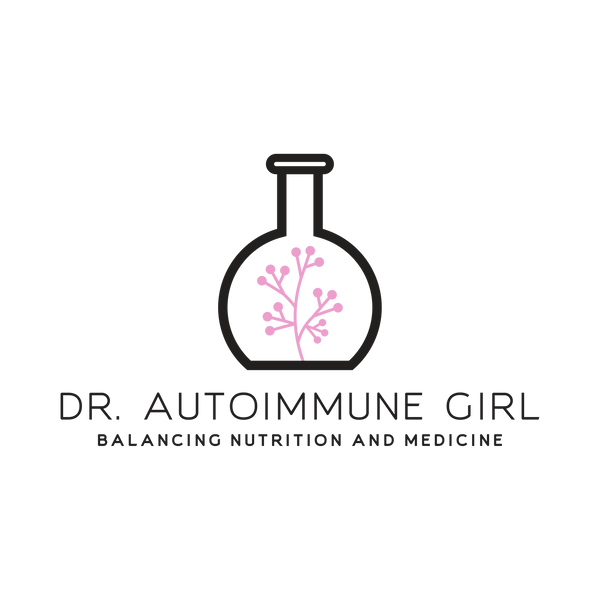This topic is near and dear to my heart as many of my conditions developed during or after pregnancy.
There is such a strong connection between the immune system and the endocrine system (hormones), and a reason why autoimmune conditions are so highly prevalent in women.
Before I begin to talk about the details, I want to give you a basic explanation of the immune system, which can be quite complex. To try to simplify it, we have two major pathways:
1. Cellular immunity (T-helper 1)
2. Humoral immunity (T-helper 2)
T-helper cells are a type of cell within the immune system that when they are activated signal other immune cells to “attack” the invader. The are categorized differently based on how they are activated and what they release to kill:
- Th1 pathway is activated by intracellular organism and secrete certain immune cells to the kill off that organism.
- Th2 pathway is activated in response to antigenic stimuli from extracellular organism and leads the body to secrete a different set of immune cells, and support the function of antibody-producing B cells.
Evidence has accumulated from animal models and human studies to suggest that Th1 cells are involved in the development of organ-specific autoimmune diseases, such as hashimoto’s, MS, rheumatoid arthritis, and type 1 diabetes. In these conditions Th1 is considered pathogenic or “bad” whereas Th-2 cells are more protective. By contrast, Th2-cell predominance was found in patients with lupus, atopic dermatitis, and allergic diseases.
So why am I bringing all this up and how does it relate to pregnancy?

Levels of estrogen before and after menopause and levels of estriol and progesterone during pregnancy appear to affect autoimmune diseases.
Estrogen appears to push the immune system in the direction of the proinflammatory Th1 pathways, EXCEPT during pregnancy. Because pregnancy is actually a high-estriol/high-progesterone state, estriol, functionally a weak estrogen and progesterone clearly has anti-estrogen properties - we actually see an improvement because estrogen levels are actually low. This is the potential reason why autoimmune diseases that involve over-expression of Th1 (e.g., rheumatoid arthritis, multiple sclerosis) frequently “go away” during pregnancy but “come back” during postpartum periods.
Thus, pregnancy appears to represent a unique situation for the immune system, switching from a Th1-dominant environment to an often Th2-dominant environment.
Although it has been almost universally held that pregnancy is a “high estrogen state,” it is in fact a time when ovarian production of hormones is suppressed and placental production of estrogens, primarily estriol, and progesterone is high. Estriol may block the effects of estradiol on the mother’s immune system, just as it blocks the negative effects of estrogen for the fetus. Progesterone has been shown to stimulate the Th2 system, which is responsible for activating B-cells and down-regulating Th1.
Rheumatoid Arthritis and MS improve during pregnancy as estriol and progesterone may function to inhibit presentation of antigens to Th1 cells, and increases the death (apoptosis) of activated immune cells. Lupus a disease of up-regulated Th2, is variable in its response to pregnancy, sometimes getting better but often getting much worse.
In some autoimmune diseases, estrogen is thought to have a dual effect, where too much or too little estrogen may be equally detrimental to the normal functioning of the immune system. In any event, it would appear that the relationship of estrogen to diseases of autoimmunity is complex and not fully worked out at this point, and the presence of an estrogen-dominant environment that we live in further complicates the immune system’s attempts to shut down the reactive furnace.
This is why I try and avoid estrogens as much as possible with my Hashimotos as I don’t want to exacerbate the response!
Check out the PIRH gut protocol to balance hormones and heal your gut!
References:
Druet P, Sheela R, Pelletier L. Th1 and Th2 cells in autoimmunity. Clinical And Experimental Immunology[serial online]. July 1995;101 Suppl 1:9-12.
Jones, D. et al. Institute for Functional Medicine (2010). Textbook of Functional Medicine. Gig Harbor, WA.: Institute for Functional Medicine.
Zhang P, Chen H, Tu Y, et al. Analysis of Th1/Th2 response pattern for erythrodermic psoriasis. Journal Of Huazhong University Of Science And Technology. Medical Sciences = Hua Zhong Ke Ji Da Xue Xue Bao. Yi Xue Ying De Wen Ban = Huazhong Keji Daxue Xuebao. Yixue Yingdewen Ban [serial online]. August 2014;34(4):596-601
